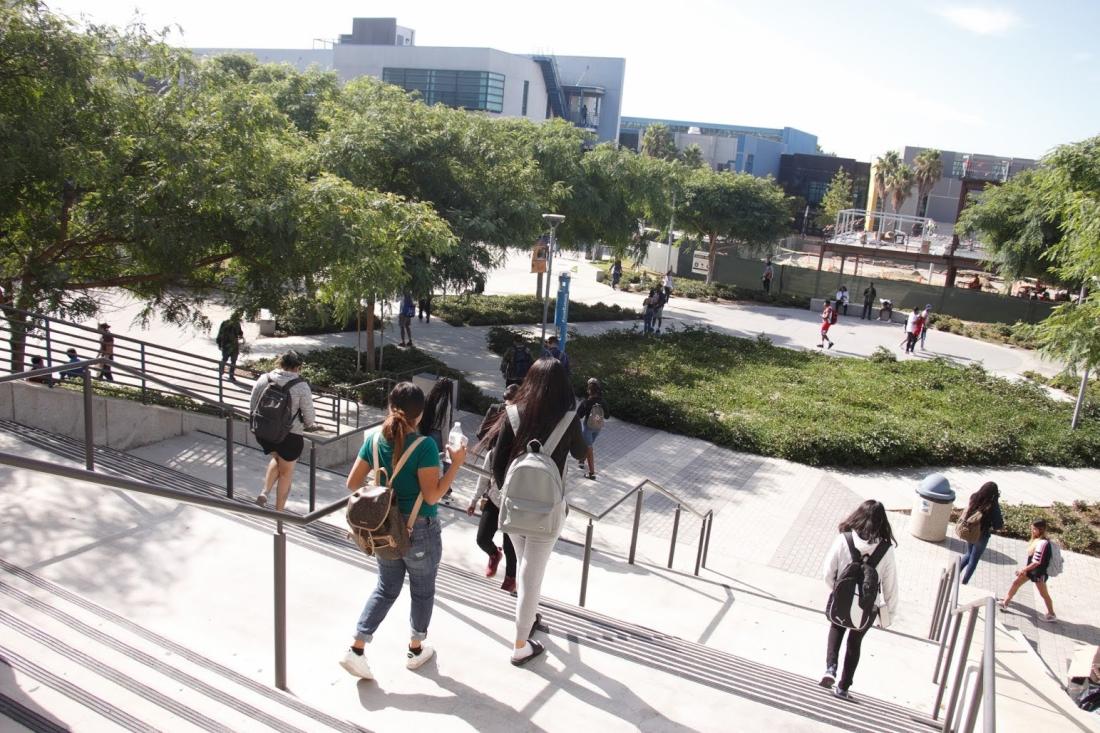Liberal Arts: Psychology of Substance Abuse (AA)
Carrers in Pshychology of Substance Abuse
Careers advocating for and supporting those with chemical dependencies usually work in a healthcare or mental healthcare facility, a community organization, a college, a public health department, a nonprofit, or even a private business. You will likely have the opportunity to work closely with licensed psychologists and together, play an important role in the lives of everyday people.
Here are just a few of the careers and their salaries you could have with a Liberal Arts degree in Psychology of Substance Abuse:
Career information below taken from bls.gov November 2019. Go to bls.gov for most current career information.
Provide client services in a variety of fields, such as psychology, rehabilitation, and social work.
National data
| Typical Education Level: | Salary: | Hourly Median Wage: |
|---|---|---|
| High school diploma or equivalent | $33,750/year | $16.22/hour |
| Work Experience in a Related Occupation: | Job Outlook 2018-2028: | Number of Jobs 2018: |
| None needed | 13% increase (much faster than average) | 413,700 |
Collect data and discuss health concerns with members of specific populations or communities.
National data
| Typical Education Level: | Salary: | Hourly Median Wage: |
|---|---|---|
| High school diploma or equivalent | $39,540/year | N/A |
| Work Experience in a Related Occupation: | Job Outlook 2018-2028: | Number of Jobs 2018: |
| None needed | 11% increase (much faster than average) | 123,800 |
Provide treatment and advise people who suffer from alcoholism, drug addiction, or other mental or behavioral problems.
National data
| Typical Education Level: | Salary: | Salary: |
|---|---|---|
| Bachelor’s Degree | $44,630/year | $21.46/hour |
| Work Experience in a Related Occupation: | Job Outlook 2018-2028: | Number of Jobs 2018: |
| None needed | 22% increase (much faster than average) | 304,500 |
Help people with physical, mental, developmental, or emotional disabilities live independently.
National data
| Typical Education Level: | Salary: | Hourly Median Wage: |
|---|---|---|
| Master’s Degree | $35,630/year | $17.13/hour |
| Work Experience in a Related Occupation: | Job Outlook 2018-2028: | Number of Jobs 2018 |
| None needed | 10% increase (faster than average) | 119,700 |
Help people solve and cope with problems in their everyday lives.
National data
| Typical Education Level: | Salary: | Hourly Median Wage: |
|---|---|---|
| Bachelor’s Degree | $49,470/year | $23.79/hour |
| Work Experience in a Related Occupation: | Job Outlook 2018-2028: | Number of Jobs 2018: |
| None needed | 11% increase (faster than average) | 707,400 |
What You’ll Learn at LASC in Liberal Arts: Psychology of Substance Abuse
You can get Associate in Arts (AA) degree through LASC’s Liberal Arts: Psychology of Substance Abuse program where you will develop an understanding for individuals struggling with substance abuse:
- With a liberal arts degree, you will have in-depth academic knowledge of psychology in which to study theoretical and new perspectives on substance abuse and chemical dependency. You’ll be able to discuss psychology as a science, have a firm grasp on common research methods and theoretical viewpoints used in psychology.
- Discover the principles of societal behavior and gain insight on how to use these principles to think critically and scientifically about the behavior of a group or individual. Explore and practice with different methods to help people from different social groups, and ultimately use these to improve someone’s quality of life.
- Become familiar with appropriate procedures in a clinical setting, like initial interviewing processes and treatment planning to ensure you are giving the best care while ensuring professional boundaries.
- LASC provides internships so you can build your career connections and create community ties for after you graduate.
- Want to transfer? What’s amazing about this field is the ability to enter these careers with almost any educational background. Because of the academic knowledge certain positions need to have, the only way to move to these next levels is by getting a bachelor’s or master’s degree. If you want to get your bachelor’s degree faster, talk with your academic counselor about what you would need to do to transfer to a four-year university or college.
Degrees & Courses You Will Take
Review the LASC Associate in Arts in Liberal Arts: Psychology of Substance Abuse (AA) degree below along with our suggested course of study for this program. Go to LASC’s current Course Catalog for specific course information:
Major Code: 2001.01
Total Units Required: 60
Upon completion of this program, you will be able to:
- Describe the goals of psychology as a science.
- List, describe, and explain the major theoretical viewpoints in psychology.
- List and describe major research methods utilized in psychology.
- Discuss and describe the intake/initial interviewing process in a clinical setting.
- Discuss and describe the treatment planning process in a clinical setting.
| Required Courses: | Units |
|---|---|
| PSYCH 1 General Psychology I | 3 |
| PSYCH 14 Abnormal Psychology | 3 |
| PSYCH 43 Principles of Group Dynamics I | 3 |
| PSYCH 63 Alcohol/Drug Studies: Prevention and Education | 3 |
| PSYCH 64 Introduction to Drug and Alcohol Abuse | 3 |
| PSYCH 65 Chemical Dependency: Intervention, Treatment and Recovery | 3 |
| PSYCH 67 Counseling Techniques for the Chemically Addicted | 3 |
| TOTAL UNITS | 18 |
Get Ready Before You Start
Interested in a career in counseling? Before your first class starts at LASC, you can start preparing for your career:
- Make an appointment with your LASC academic counselor to review LASC’s program, start to develop a Student Education Plan (SEP), and discuss your career goals. If getting a bachelor’s degree makes more sense for what you want to do, talk with your counselor about the courses you would need to take to transfer!
- Still in high school? Look for opportunities to volunteer and make positive impacts in your community. Talk with your high school counselor to see if there are opportunities to intern at local nonprofits or shadow someone for the day. Look for summer opportunities in your local community service organizations where you can learn more and gain more experience in your future career.
Program Learning Outcomes

As a student, upon successfully completing this program, you will be able to:
- Describe the goals of psychology as a science.
- List, describe, and explain the major theoretical viewpoints in psychology.
- List and describe major research methods utilized in psychology.
- Discuss and describe the intake/initial interviewing process in a clinical setting.
- Discuss and describe the treatment planning process in a clinical setting.
